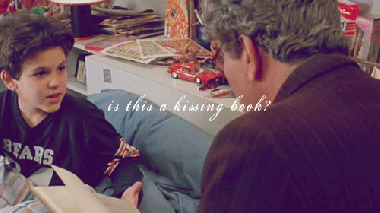HOW TO ENCOURAGE TWEENS & TEENS TO READ FOR PLEASURE
This is a guest post by Ryan Spencer, Dymocks Literacy Expert and State Director of the Australian Literacy Educator’s Association
Reading a good book is one of life’s greatest pleasures. We need to share these experiences with our children and adolescents in order to assist them in developing into strong and capable readers.
If you’re struggling to encourage your tweens and young teens to read for pleasure, here are some great tips to keep in mind.
KEEP A BALANCE
When your children bring home required reading, whether it be home readers or a set text for class, make sure that this isn’t the only reading they do. Provide incentives for your child to want to return to books of their own choice, in order to foster their interest in reading. Let your kids choose books they will simply enjoy or find entertaining, rather than treating it as a learning exercise. It’s important that they have the opportunity to read different texts without agonising over every literary aspect (as they do in school). Sometimes, it’s great to just enjoy a book for what it is.
LET THEM CHOOSE WHAT THEY WANT TO READ
Letting your child make their own choice about what they want to read is the most powerful way to encourage them to be motivated and interested readers. As adults, we very rarely read anything that we either don’t love or enjoy. Why then do we insist that children must read cover to cover something that they don’t necessarily enjoy or like? Your children need to know that it is okay to read whatever they want, when they have the opportunity to do so.
DON’T IMPOSE LIMITATIONS
When we think of reading for our children, we are often misled into thinking that we need to focus on one type of book, such as novels in order to practise specific, reading-related skills. However, this narrowly-focused approach to reading instruction can often have undesirable benefits, such as turning kids off reading altogether. When we restrict choice, particularly to contrived, boring texts, children frequently see this as an indicator of their reading capability and therefore meet that low expectation. Once we take the restrictions away from what children read, their self-efficacy towards reading increases, therefore leading to an increase in their reading ability.
CELEBRATE BOOK CHOICE
Children need to be engaged in what they are reading in order to practise reading skills. Celebrate book choice and encourage your kids to access different types of reading material in varying text formats, whether it’s nonfiction titles, biographies, graphic novels, blogs or casual literature (e.g. newspapers and magazines). Let your children dictate what they want to read. By encouraging our children to be adventurous and creative readers, we are establishing reading habits that will stay with them for a lifetime and will assist in their future academic development.
MAKE IT A FAMILY AFFAIR (AND TALK ABOUT IT)
When parents are avid readers and actively talk about books with their children, they are establishing a climate at home where books are valued. Discussing your favourite books and parts of books with your children can lead to the discovery of new reading material about shared interests.
MARRY MOVIES WITH BOOKS
Encouraging children to seek out books based on popular film and television programs is also a great way to extend their interests beyond watching the screen alone. After reading parts of these books together, you can discuss with your child how the story varies between the visual and print versions and ask them which they prefer and why.
LIFT THE PRESSURE!
As adults, we read what we like and enjoy. We don’t feel pressured to finish a book if it doesn’t interest us. It is vital that we strive to provide the same environment for our children, where there are no penalties for unread or unfinished books, or for reading the last page first!
DYMOCKS BOOK RECOMMENDATIONS
(N.B. At my request, these book suggestions to get your young people to read include titles with strong female characters.)
FOR TWEENS
- Squishy Taylor series by Ailsa Wild
- Our Australian Girl series by Lucia Masciullo
- Dork Diaries series by Rachel Renee Russell
- My Life as an Alphabet by Barry Jonsberg
- Bella and the Wandering House by Meg McKinlay
FOR TEENS
- The Ellie Chronicles by John Marsden
- Does My Head Look Big in This? by Randa Abdel Fattah
- Cloudwish by Fiona Wood
- For the Forest of a Bird by Sue Saliba
- The Obernewtyn Chronicles by Isobelle Carmody
- Inbetween Days by Vicki Wakefield
- The Colours of Madeleine trilogy by Jaclyn Moriarty
Want more? Check out a range of children’s books from Dymocks online, including books for young adults and older readers.
#FYBF @ With Some Grace.








